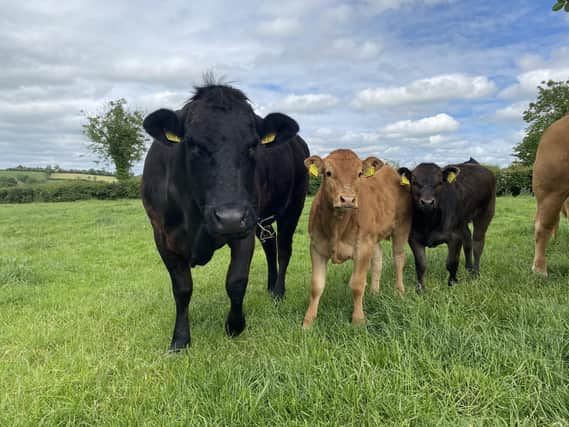Cost of bTB soaring in NI, says UFU


A recent DAERA stakeholder working group was informed that the cost of the bTB programme now sits at over £45m annually for the 2021/22 financial year, with the 2022/23 year forecast to be in the region of £48m.
Meanwhile, the deployment of the revised bTB eradication strategy is eagerly awaited by UFU members.
Advertisement
Advertisement
UFU president David Brown said: “Over the last ten years the cost of bTB has increased. By April 2023 (end of the financial year), it is projected to have cost the taxpayer an additional £17.1m.
"These costs do not take into account any of the lost revenue incurred on farms, let alone the stress that farm families are subjected to when they lose livestock to bTB.
“At the end of October 2022, the herd incidence level for bTB reached 9.95%. The only time it ever briefly exceeded this percentage, was following the Foot and Mouth outbreak 20 years ago.
"Farmers across NI are eager to adopt a different strategy to reduce bTB levels for the benefit of their animals and the environment. This was highlighted by the overwhelming support and strong turnout at the recent bTB information roadshows that took place across NI. Yes, DAERA has a key role to play in all of this, but NI farmers recognise they do too, and they can only do so much with the limited tools that are available at present.
Advertisement
Advertisement
“The UFU has committed a huge amount of time and resources to driving the revised bTB strategy forward and continue to work to get it put in place. We’ve been liaising with the two expert working groups that have been working on this new eradication strategy. The TB Strategic Partnership Group (TBSPG) was established in 2014 and TBEP was launched at Balmoral Show in 2018, and now, we have a finalised strategy that has followed the science sitting there ready to go. Meanwhile the absence of meaningful action continues to yield huge financial losses, causing emotional devastation on NI farms.”
With NI on the journey towards net zero and the agri-food industry having a major role to play coupled with the rising demand for food globally, bTB is affecting the sustainability of farms.
“The least sustainable aspect of our production system is the removal of almost 16,000 productive animals every year due to bTB, while being challenged to reduce our carbon footprint and produce more efficiently – it’s a complete contradiction. Not to mention that agricultural production needs to increase by an estimated 60 percent to meet the rising food demand from a decreasing area as population and climate pressures reduce the land available for food production.
“The bTB eradication strategy consultation was a once in a generation opportunity and while significant progress has been made to date, we have yet to fully implement it. We need to get the revised strategy in place urgently so that farmers can use every measure within the policy to help eradicate the disease from NI once and for all, benefitting the environment and wildlife, strengthening the sustainability of our agri-food industry as well as freeing up monies so that it can be utilised for other causes benefiting everyone in society,” said Mr Brown.